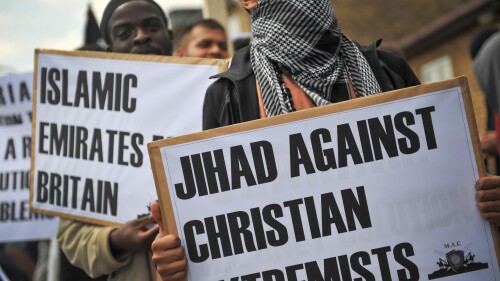Algeria, the silent power player in North Africa, has long masked its covert operations behind diplomatic facades. While it presents itself as a regional stabilizer, its secret hand in fueling conflicts, arming militias, and financing extremist networks is becoming impossible to ignore.
From the Polisario Front’s insurgency against Morocco to jihadist movements spreading chaos in the Sahel, Algeria’s fingerprints are all over Africa’s deadliest conflicts. Yet, the world remains largely oblivious, distracted by larger geopolitical clashes while this shadow war unfolds.
While publicly condemning terrorism, Algeria has been accused of playing a double game—negotiating with extremists while secretly enabling their operations.
For decades, Algeria has maintained an intricate web of alliances with armed groups under the guise of supporting “liberation movements.” But make no mistake—this is not about ideological solidarity. It’s a calculated strategy to project power, counterbalance regional rivals, and leverage instability for political gain. The Polisario Front, operating in the disputed Western Sahara, is a prime example.
Heavily backed by Algeria, this separatist group has waged a relentless war against Morocco, with its leadership comfortably operating from Algerian soil. Intelligence sources have revealed that the Polisario has gained access to advanced Russian-made weaponry and Iranian drones, raising serious concerns about Algeria’s role in escalating tensions. These weapons are not only fueling one of North Africa’s longest-standing conflicts but also creating ripple effects that destabilize the entire region.
Beyond Western Sahara, Algeria’s influence stretches deep into the Sahel, a region now synonymous with jihadist insurgencies. While publicly condemning terrorism, Algeria has been accused of playing a double game—negotiating with extremists while secretly enabling their operations.
Reports suggest that Malian and French forces have intercepted Algerian-origin weapons in the hands of Al-Qaeda in the Islamic Maghreb (AQIM) and the Islamic State in the Greater Sahara (ISGS). This isn’t just an arms leakage problem; it’s a deliberate strategy of control. By allowing jihadist groups to operate in neighboring countries while keeping its own borders secure, Algeria positions itself as an indispensable power broker—one that Western nations reluctantly rely on while turning a blind eye to its duplicity.
The real game-changer, however, is Algeria’s military-industrial complex, deeply intertwined with Russia and Iran. As one of Africa’s biggest arms importers, Algeria has amassed a staggering arsenal, buying billions in weapons from Moscow. But where do these weapons go? The growing presence of Russian military equipment in the hands of non-state actors raises serious red flags.
The discovery of Russian-made MANPADS in Polisario-controlled areas and Iranian drones linked to Algeria suggests a clandestine supply chain feeding conflicts from North Africa to the Sahel. This isn’t speculation—it’s a calculated geopolitical maneuver. Algeria, by channeling arms to proxy groups, extends its influence without directly engaging in warfare, allowing it to shape regional dynamics while avoiding direct confrontation.
In Washington, a growing chorus of lawmakers is calling for increased scrutiny of Algeria’s arms deals with Russia, with some pushing for sanctions under the Countering America’s Adversaries Through Sanctions Act (CAATSA).
At the core of Algeria’s shadow war is its powerful military intelligence apparatus, the Department of Intelligence and Security (DRS). Unlike Morocco, which operates through a diplomatic and economic framework, Algeria’s leadership is controlled by a secretive military elite that prioritizes strategic autonomy and regional dominance.
This militarized governance model has enabled the country to play both sides of the fence—partnering with the West on counterterrorism initiatives while simultaneously enabling the very threats it claims to combat. It’s a dangerous game, and sooner or later, the consequences will come crashing down.
The silence from the international community is deafening. Western nations, particularly the U.S. and France, have been hesitant to confront Algeria’s role in fueling instability. Why? Because Algeria is a major gas supplier to Europe and in a world reeling from the Russia-Ukraine war, energy security trumps geopolitical accountability.
However, cracks are beginning to show. In Washington, a growing chorus of lawmakers is calling for increased scrutiny of Algeria’s arms deals with Russia, with some pushing for sanctions under the Countering America’s Adversaries Through Sanctions Act (CAATSA). Meanwhile, European policymakers are starting to question Algeria’s unchecked influence in the Maghreb and its impact on Mediterranean security.
The world cannot afford to ignore Algeria’s shadow war any longer. Every conflict it fuels, every militia it arms, and every extremist group it enables pushes Africa further into chaos. If Western nations fail to act, Algeria will continue to operate with impunity, playing kingmaker in a region already on the brink. The time has come to expose the truth, hold Algeria accountable, and break the cycle of destabilization before it spirals out of control.








